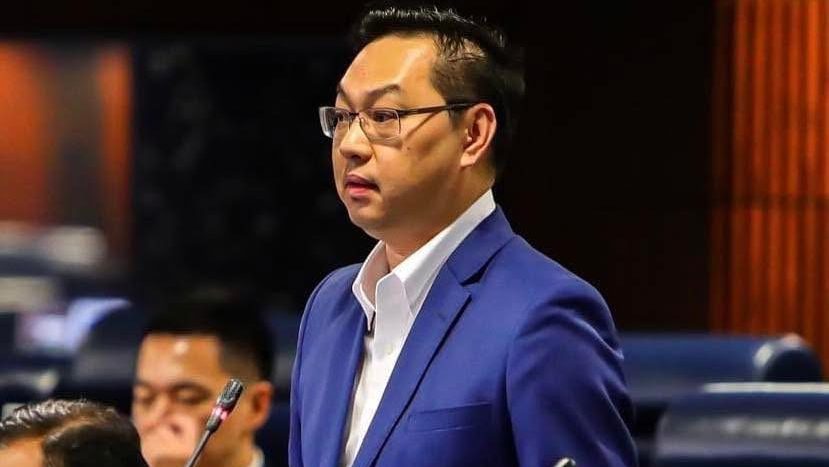MALAYSIA: Jimmy Puah, Member of Parliament for Tebrau, recently proposed introducing mandatory inspections for vehicles older than 15 years, sparking discussions on road safety and traffic congestion in Malaysia.
Puah argues that ageing cars are more prone to mechanical failures, leading to breakdowns and potential accidents. “Old cars are likely to break down, contributing to traffic congestion and endangering other road users,” he told the Dewan Rakyat, as Free Malaysia Today (FMT) reported.
While many support ensuring that vehicles remain roadworthy, some critics argue that mandatory inspections could disproportionately affect lower-income individuals who rely on older cars due to financial constraints. Regular inspections could lead to additional costs, forcing some owners to either invest in expensive repairs or risk losing their primary mode of transport.
Cash incentives for scrapping old vehicles
To address the potential burden on car owners, Mr Puah suggested that the government provide cash incentives to encourage the scrapping of older vehicles. He believes this would be an effective way to remove ageing cars from Malaysian roads gradually.
Such a scheme could make it easier for owners of old vehicles to transition to newer, safer, and more environmentally friendly models. However, critics argue that financial aid must be substantial to ensure that those who depend on older cars are not left without affordable alternatives. If not implemented carefully, the policy could benefit only those who can afford to replace their vehicles.
Malaysia currently has over 36.3 million registered vehicles, surpassing the nation’s total population when excluding children under 17 and senior citizens above 80. “This means nearly every Malaysian owns two cars,” Mr Puah noted, according to FMT. No wonder traffic congestion plagues Malaysia.
However, some question whether removing old cars would significantly reduce traffic. The primary cause of congestion is not just the number of vehicles but also inadequate public transport and urban planning.
While reducing the number of breakdowns may improve traffic flow, a long-term solution may lie in investing in public transport rather than simply phasing out old cars. Improved public transport would not only reduce traffic congestion but also ease the financial burden on lower-income households by eliminating the need to purchase newer cars
Support, criticism, and alternative suggestions
Mr Puah’s proposal has drawn mixed reactions from the public, with some suggesting alternative policies that could make new cars more accessible. One netizen on Facebook argued, “MP, how about abolishing duty so that cars are cheaper and everybody can afford to replace them every few years? It’s a much more welcomed move.” Another echoed the sentiment, stating, “The cars should be tax-free. This will also encourage car owners to change to a newer car.”
Supporters of this viewpoint argue that reducing or eliminating taxes on new cars would provide a more practical and equitable solution. By making new vehicles more affordable, the government could encourage more Malaysians to upgrade to safer and more environmentally friendly cars
.Meanwhile, others questioned the proposal’s relevance, pointing out that there are more pressing traffic concerns. “MP should also suggest to unregister vintage cars too. Some even drive our golden saga. Apart from this, he should buy a new car for suggestion. There are more important traffic problems nationwide. Please-lah, have some value-added proposal in parliament,” one critic remarked sarcastically.
Environmental considerations
Phasing out old cars could have positive environmental effects by reducing emissions from outdated engines that do not meet modern fuel efficiency or emission standards. Many older cars lack the technology to minimise air pollution, contributing to Malaysia’s urban air quality issues.
However, there is also an environmental cost to manufacturing new cars. Scrapping older vehicles prematurely may lead to increased demand for new vehicle production, which involves resource extraction, manufacturing emissions, and waste generation. Therefore, a balanced approach may yield the best results, such as promoting electric vehicles and hybrid alternatives while providing incentives for scrapping old cars.
The debate over retreaded tyres
Beyond vehicle age, Mr Puah also raised concerns over retreaded tyres, citing a 2019 Works Ministry report linking them to 10,000 accidents in a year. “That was in 2019. Now, in 2025, I am certain the number is even higher. The government must seriously consider banning retreaded tyres,” he said in an article by FMT.
Retreaded tyres are commonly used by heavy vehicles due to cost savings, but they have been criticised for their higher risk of failure than new tyres. Others argue that properly retreaded tyres can be just as safe.
“When retreaded properly by a reputable company following industry standards, commercial and private retreaded tyres can be just as safe as new tyres, with the key factor being the quality of the retreading process and regular maintenance,” one Facebook comment stated.
While banning them could improve road safety, it could also increase operational costs for transport companies, potentially leading to higher prices for goods and services.
Calls for careful reconsideration
While Mr Puah’s proposal aims to enhance road safety and reduce congestion, its potential impact on lower-income vehicle owners and broader transportation policies must be considered. Mandatory inspections and cash incentives could help ensure that Malaysian roads are safer, but congestion may persist without improvements to public transport and urban planning.
Additionally, while phasing out old cars may reduce emissions, environmental sustainability requires a more comprehensive approach, balancing new vehicle adoption with responsible resource management. Ultimately, policymakers must weigh these factors carefully to ensure that any measures implemented are fair, effective, and beneficial for all Malaysians.
Read also: JPJ warns of rising trend in using dummy buckles to bypass seat belt alarms

